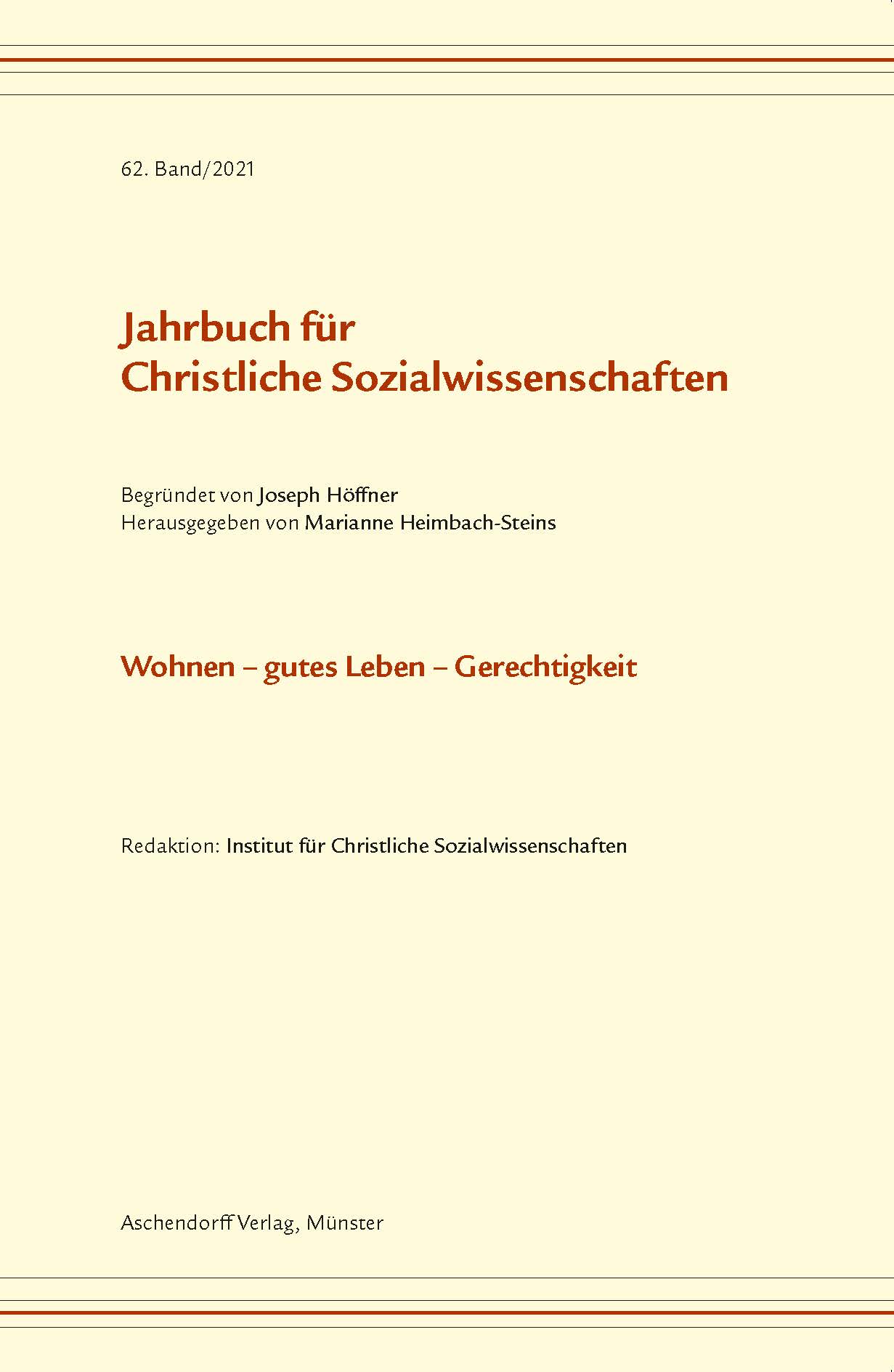Nachhaltiges Bauen und Wohnen
DOI:
https://doi.org/10.17879/jcsw-2021-3547Abstract
The challenges of sustainable construction and housing are highly explosive in sociopolitical and ecological terms. They require complex trade-offs between the goals of affordable housing, climate protection, resource conservation and saving of land. In cross-sectoral model calculations, 39 % of greenhouse gas emissions in Germany are attributed to the construction sector. Through the targeted recycling of building materials, the construction sector can make a significant contribution to the implementation of a circular economy (urban mining). The material requirements of a refurbishment are approximately two-thirds lower than those of a new building. However, in the shadow of speculation and the optimization of returns on capital, new construction is not currently geared toward eliminating the housing shortage. A new tax structure regarding land is proposed to limit this dynamic. Housing sufficiency is also an indispensable step on the path to more equitable and carbon-neutral housing. Strengthening inner-city green spaces and urban and spatial planning geared to a functional mix also offers far-reaching opportunities for better residential quality. A holistic understanding of building culture is crucial in order to reconcile quality of life and health, climate protection and resource conservation, and relieving the burden on municipal budgets. Last but not least, the “city as form and practice” (Löw) is an essential key to the success of integration and social cohesion.

